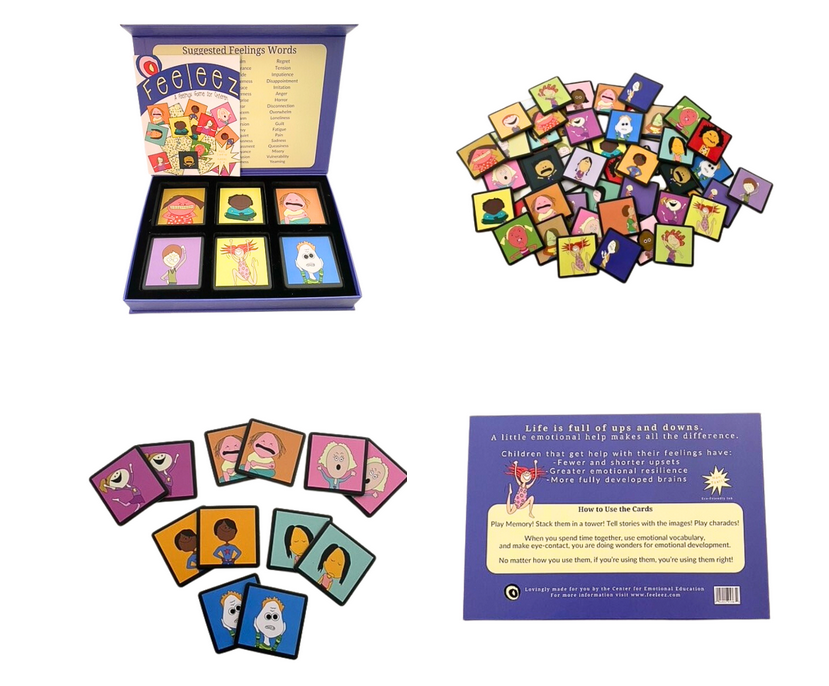How's it going with you?
We're writing today because we learned something cool. Want to hear it?
Whether your native language is English, Spanish, West Coast surfer, or a Deep Southern drawl, according to the American Psychological Association...
Emotional support in our own native language is more effective in comparison to any secondary language.
Understanding and interpreting our ideas, experiences, and emotions in our primary language comes more naturally to us. We can fluidly and spontaneously express our feelings or describe our situation without pause and without concern for being misunderstood. This means that our Emotional System is unhindered, and fully supported. And that means we are well set up to navigate troubled waters and return to equilibrium.
And "native language" takes many forms doesn't it? Sure, it refers to the actual language we speak, but also to the context of our stories and the adjectives we use to qualify them. In this way, it's really helpful when our support person can personally understand literally where we're coming from.
It feels good when we're talking to someone that truly gets it.
Do you have one of those people?
Here at the Center, our NeuroEmotional Coaching modality can support anyone and everyone to rewire their brains to have less stress, overwhelm, and anxiety, and more ease, joy, and peace. But each of us also has our own context, history, and backgrounds that can bring even more comfort and support to our clients.
Ana Muriel is one of the most recent graduates of our rigorous NeuroEmotional Coaching Certification program, and we feel great delight to report that she has now joined the Center for Emotional Education coaching team!
Ana loves working with Spanish-speaking, creative, high-achieving, immigrant mothers navigating the challenges of motherhood and self-identity while living in a different culture.
She says:
"In a world where many of us carry the title of "immigrant," the reasons behind our journeys often shape how we see ourselves and navigate our lives. Whether you chose to migrate seeking new horizons and opportunities, or were compelled to leave your homeland due to difficult circumstances, your story is unique—and so is the strength it has given you.
For many women, particularly mothers who are navigating the complexities of raising children in a foreign culture, where the mother tongue is not anymore the dominant language at home, and where the smell, sounds and tastes from the new culture take over, the path can feel overwhelming. You may have left your home for love, a career, or the promise of a better future, only to find yourself grappling with loneliness, guilt, or the pressure of not doing enough. These are not just surface-level challenges; they can manifest as deep, somatic imprints—stress that settles into your body, affecting your sense of identity and your ability to enjoy the life you've worked so hard to build."
Getting the right kind of support for who we truly are, in the current circumstances we face, can make all the difference in the world.
And who doesn't want their emotional support to be as effective as possible???
Each of our coaches has their own dream clients they love to work with.
Want to hear some more?
Coach Kate Collins is drawn toward working with motherless-mothers, who have lost their mom to death, abandonment, or chosen separation before becoming a mother themselves, and who also navigate perfectionism and a harsh inner critic.
Coach Sue Preneta loves working with post-menopausal north-easterners, recently divorced, condiitioned to hustle, and rediscovering their sexuality.
Coach Lauren Falconer really enjoys supporting busy women in their 40’s and 50’s, who are navigating life transitions, and struggling with sensitivity and overwhelm.
Coach, and co-founder of the Center for Emotional Education, Nathan M McTague is currently particularly drawn to teaming up with mid-life mystics who, despite all their magical tools, need more support in grieving the death of a loved one.
Coach, and co-founder of the Center for Emotional Education, Natalie Christensen, delights in working with folks she calls thoroughbreds – who are full of power, charisma, and appeal, but are sometimes held back and stopped from the full extent of their awesomeness by fear and sometimes shame.
Do you have someone that really speaks your language and knows just where you're coming from <<First Name>>?
Whether it's with one of us or someone already in your circle, we really encourage you to find someone with whom you can share your heart. Humans aren't meant to do all this tough stuff alone. We all need someone walking by our side, saying:
I hear you.
I understand you.
I'll stay with you.
And in any case and always, we're sending you so much love,
The Center for Emotional Education Team
ps. If you'd like to speak with one of our coaches about your situation and the support you need, we encourage you to book a complimentary "Feel Better Already" Strategy Session with one of us.


















